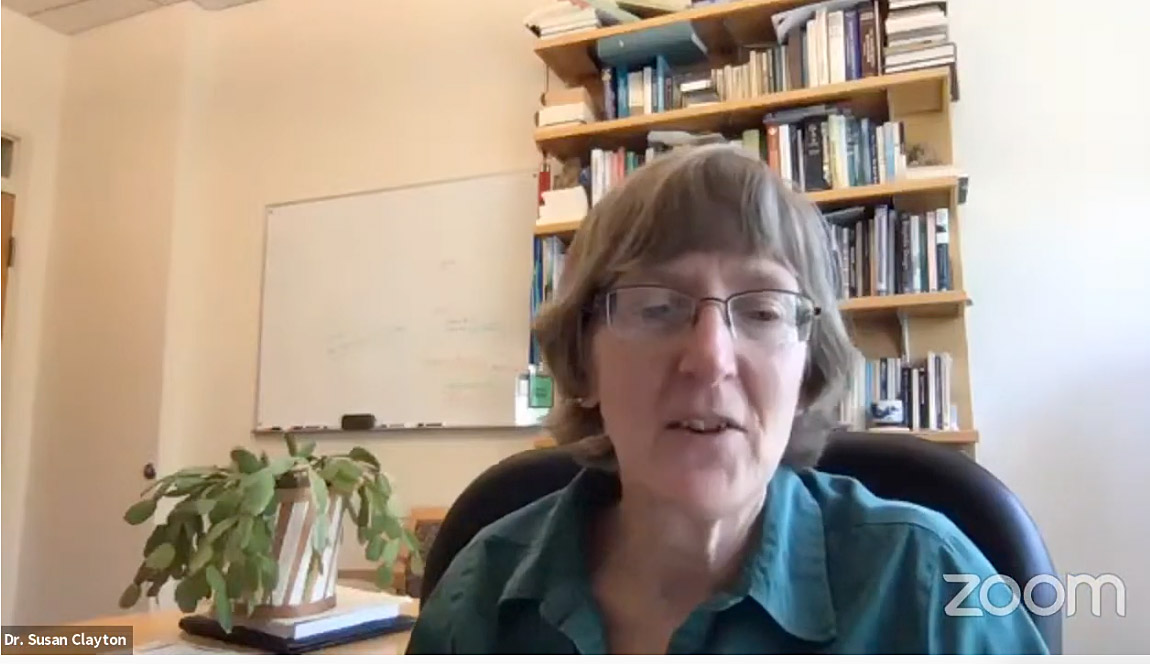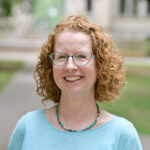
Susan Clayton the First Guest on Environmental Identities Program

WOOSTER, Ohio – Susan Clayton, an internationally-known expert on conservation psychology and the Whitmore-Williams Professor of Psychology at The College of Wooster, was the inaugural guest of Environmental Identities, a new series presented by the Jan van Eyck Academie in Maastricht, The Netherlands. The program, which debuted on June 16, defines itself as “public conversations, screenings, and other online and offline events in pursuit of a multi-layered understanding of the co-defining relation between self- and social identity and the natural environment.”
Environmental identity is a new concept for many, so Clayton was first asked to help define and explain it. “A personal sense of connection to the natural world, and I think a useful way to think about it is to think about other sources of identity. National identity, professional identity. We have multiple identities and they affect how we think about ourselves. Again, we just don’t have a single identity, and sometimes it changes over time. So, sometimes you may be very aware of your … identity, and other times you’re not thinking about it at all,” she said.
Clayton also emphasized that environmental identity is “something everyone can have, but it varies in strength from one individual to another,” and noted “a big influence is how you were brought up. Your childhood experiences. Certainly being out in nature is going to be important both as a child and even as an adult of how to create and activate your environmental identity.”
The moderator went on to ask Clayton about several other environmental identity-related topics, including the level of importance different cultures place on environment, moral and ethical components to protecting nature, the mental health aspect of climate change, COVID-19’s impact, and much more.
Clayton shared several interesting thoughts on COVID-19, commenting that it’s a reminder “of (our) interdependence on the natural world” and “how we are subject to a perturbation, a disturbance in the environment.” She warned that “at some level, (this) was a consequence of our behavior by human infringement on natural habitats for example, so it kind of reminds us of that entanglement and simultaneously says you need to change your behavior to avoid this kind of thing happening in the future.”
Labeling it a “potential transition point,” the hopeful Clayton also suggested some actionable items that can be taken to strengthen one’s environmental identity, such as substituting business travel for more on-line events and meetings, which will lead to a “huge reduction in carbon emissions.” This time in history is “reminding people of their identity and the values that identity promotes might encourage them to behave in more pro-environmental ways,” she said.
The complete 77-minute webcast, which also includes a question-and-answer session with scholars at the Jan Van Eyck Academie, is available to view on YouTube.
The Jan van Eyck Academie, established in 1948, is a multi-disciplinary, post-academic institute offering residencies to artists, designers, researchers, writers, curators, and architects. Every year, the program welcomes 40 international participants, providing them time, space, and expertise needed to develop their art practice in depth.
Posted in News on June 23, 2020.
Related Posts
Related Areas of Study
Psychology
Do research, work with faculty mentors, and tailor a psychology program to your interests
Major Minor

